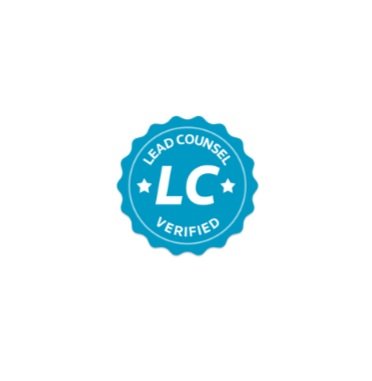
frequently asked questions
FAQ
faq. referral
-
Attorneys are required to comply with Minnesota Rues of Professional Conduct (Rule 1.18 “Duties to Prospective Client”). The name of the opposing party is for the purpose of conducting a conflict check to determine if our attorney(s) is precluded from representing you. If there is a conflict, you will be told as such, however, due to confidentiality, we will not be able to tell you why the conflict exists.
-
Not for the initial consultation. Beyond the initial consultation, there may be a charge for additional consultations. If you retain the firm in a consulting capacity only, a retainer agreement will be executed to clearly outline the scope of engagement and the fee.
-
Consultations can be conducted in person at our Edina office, by phone, or by video conference, scheduled at the attorneys first available opening that matches your availability, during regular business hours. The initial consultation typically occurs within one week of contacting our office.
-
No. Our attorneys cannot provide legal advice until they have been formally retained. However, during the consultation, our attorneys may discuss Minnesota law, court proceedings, or strategies, related to the factors and questions that you present, yet this should be considered general information and not legal advice unless a retainer agreement is signed.
-
Typically, the attorney will provide general legal information relating to the questions and concerns that you present. The attorney will assess whether or not our firm can assist with your case, based on several different factors, including the fees for services, and the terms of the retainer agreement.
During an initial consultation, an attorney may discuss the following with a potential client:
• The client’s legal issue and the facts surrounding it.
• The client’s goals and expectations for the case.
• The client’s options for resolving the legal issue.
• The attorney’s experience and qualifications in handling similar cases.
• The attorney’s strategy for handling the case.
• The attorney’s fees and billing practices.
• The attorney’s availability and process including next steps, if any.
It’s important to note that the specific topics discussed during an initial consultation may vary depending on the attorney and the client’s legal issues. Additionally, attorneys can only provide general information during the initial consultation and cannot give legal advice unless a retainer agreement is signed.

faq. adoption
-
Adoption takes place in various forms which are generally classified as: independent, agency, step parent, relative placement and adult adoption. Independent adoption occurs when birth parents and adoptive families find each other on their own or through the help of an adoption intermediary, i.e. a pastor, family friend or doctor. Agency adoptions are handled through a child placement agency and approximately two-thirds of all adoptions in the United States are arranged through agencies.
In a step-parent adoption, the family adopting is a birth parent with a new spouse. Adult adoption is the process whereby a person eighteen years or older is legally adopted by one or more persons eighteen years or older, and relative placement adoption occurs when the birth parent(s) is still a minor, has died or is disabled, or the child has been removed due to abuse and neglect, and another relative assumes physical custody and responsibility for the child.
-
Civil Aspects of International Child Abduction and How Does it Apply to Family Law:
When families move internationally or are created internationally, international treaties and custody laws may be at issue.
One example is the instance in which a child is wrongfully removed from or held in a foreign country. If this happens, the Hague Convention on the Civil Aspects of International Child Abduction may apply.
The Hague Convention on the Civil Aspects of International Child Abduction is an international treaty that the United States has entered with many other countries around the world. If the country that is at issue in your case is a signatory of the Hague Convention treaty, then that country’s legal system and the U.S. State Department will assist in facilitating the return of your child from the United States.
However, the process of facilitating the return of a wrongfully removed child is a process that requires prompt action and extensive knowledge of the procedures and documentation required by the Hague Convention to prevail in the return of a wrongfully removed child. Baker Vicchiollo Law, LLC has experience with cases involving The Hague Convention and are here to help.
-
The short answer is: no, you do not need an attorney to adopt a child. However, as with many other types of legal proceedings, hiring a knowledgeable attorney to guide you through the adoption process can bring you confidence during what is often a confusing and stressful time.
The role of the adoption attorney may range from consultation to full representation, and may include services such as: educating on the process and procedures, coordinating stakeholders, explaining state or international laws, reviewing or drafting paperwork, or appearing with you during adoption proceedings.
faq. estate
-
When a Minnesota resident dies without having made a last will, the intestacy succession laws found in the Minnesota Statutes will dictate who inherits the estate according to the Table of Minnesota Heirship available on the Minnesota Attorney General’s website Table of Minnesota Heirship.
-
Yes, in many cases a basic will may be suitable, however, factors that should be considered include:
• value of your estate
• family structure and dynamics
• asset complexity such as joint ownership of multiple properties or a business interest
• beneficiary distributions
• special circumstances, i.e., disabilities, blended families, debt
• healthcare directives
• financial goals
• state-specific laws
Our attorney will discuss all of these factors in determining if a basic will is suitable and present all of your options. Even if you decide to proceed with a basic will, find out what the risk factors and ramifications may be by scheduling a consultation.
-
• Real Estate in Multiple States – There has to be a probate in each state where real estate is owned. Using a revocable trust and transferring property to the trust will avoid multiple probates.
• Business Ownership or interests – If you own a business or have an interest in a business, operations may be interrupted until a court appoints a Personal Representative, depending on how your business is structured.
• Desire for Privacy – Probates are public, revocable trusts are not.
• Desire to Cut down disputes – There is no “notice” with revocable trusts, whereas with a probate all heirs get notice and opportunity to contest the will.
• Lifetime Professional Asset Management – If you do not want to manage your assets, or if incapacity is a concern, using revocable trust and appointing a professional trustee can be beneficial.
• Desire to Simplify After Death Administration – One of the main functions of probates is to transfer assets to beneficiaries. With a revocable trust, the client transfers the asset prior to death, which can cut down on administrative costs at death.
• No court supervision – The trustee simply has to follow what the trust tells him to do and needs no court supervision unless requested by the trustee or beneficiaries.
-
REVOCABLE & IRREVOCABLE TRUST
Establishing a trust allows for more specific instructions on how you want assets, or a specific asset, managed and/or distributed, and some trusts can even be implemented before death. Depending on your situation and wishes, there are several types of trust to consider: contingent will trust, revocable trust, irrevocable trust, charitable trust, special needs trust, and more.
-
POWER OF ATTORNEY
Designating someone who can legally act on your behalf can be customized to fit various situations, duration, and conditions. Clearly stating the range of authority is important as is knowing when and how to revoke the authority. Contact our firm to execute the proper documents customized to your specific circumstances or to revoke current authorizations.
-
HEALTHCARE DIRECTIVE
Healthcare agents, Living Will, Do Not Resuscitate Order, Medical Power of Attorney, and Physician Order, are directives that some people also consider at the time of establishing a will, but may also be added as components later. Understanding each directive and its implications is important so that decisions can be made in a timely and planning manner.
-
Baker Vicchiollo Law offers two document packages, one for minor children called “The Custodial Care Plan” & another for young adults called “The Advocate Plan.” These packages include essential documents and optional ancillary documents. These packages are available on a flat fee basis.
For minor children:
Authorize a trusted individual(s) to act on your behalf in the event of a medical emergency that results in your incapacitation.
• Medical Power of Attorney
• Important Health Care Information
• Nomination of Guardian
• Instructions to Caregiver
• Nomination of Temporary Guardian
• Instructions to Guardian
For young adults:
Continue to be the parental advocate for your young adult should they experience a medical emergency.
• HIPAA Waiver
• Digital Asset Authorization
• Flat rate: $300
• Health Care Directive
• Power Of Attorney
-
Our attorney will provide clear pricing for the services recommended or the services that you choose, following a consultation and/or the review of the completed estate planning questionnaire. We offer two methods of pricing; flat fee and hourly.
Services that may be available on a flat fee basis:
• Nuptial Agreement Enforcement Review
• Estate Planning
• Power of Attorney
• Healthcare Directive
• HIPAA Release
Services that are only available on an hourly basis due to variables & dynamic nature:
• Deed
• Nuptial Agreement – negotiating & drafting
• Marital Agreement
• Probate
• Estate Administration
• Guardianship & Conservatorship
• Business Entity & Succession Planning
-
the information is necessary to effectively determine the important facts of your case, identify issues, goals and discuss likely outcomes.
-
The Attorney General’s website provides the “Table of Minnesota Heirship”, which can be found here. Table of Minnesota Heirship.
-
If any of these changes occurred in your life since you executed your will or Trust, we recommend having an attorney review your documents as soon as possible. In some cases, after certain life events, your existing will or trust documents may be invalidated.
• Have you married or divorced?
• Have relatives or other beneficiaries or the executor died or has your relationship with them changed substantially and no provision is made in your will or trust for this contingency?
• Has the mental or physical condition of any of your relatives or other beneficiaries or of your executor changed substantially?
• Have you had more children or grandchildren, or have children gone to college or moved out of, or into, your home?
• Have you moved to another state?
• Have you bought, sold, or mortgaged a business or real estate?
• Have you acquired major assets (car, home, bank account)?
• Have your business or financial circumstances changed significantly (estate size, pension, salary, ownership)?
• Has Minnesota state law (or have federal tax laws) changed in a way that might affect your tax and estate planning?
• Have your wishes changed?
Schedule a consultation today to discuss how any of the above life events or factors may necessitate changes to your will or estate plan documents.

faq. financial support
-
Under the Child Support Enforcement Act of 1984, it is against the law for any parent to not pay Court ordered child support to the custodial parent. Federal laws permit the interception of tax refunds by government officials to enforce child support orders, and other methods of enforcement used by government officials include wage attachments, seizure of property, suspension of a business license and possible driver’s license revocation. If none of these attempts are entirely successful, the Court of law that issued the child support order can hold the parent in contempt and, in the absence of a reasonable explanation for the delinquency, impose a jail term.
-
If determined by the Court to be the legal father (presumed, Recognition of Parentage, adjudicated, or through adoption), the father may be required to pay child support. Child support should not be confused with custody or parenting time, for both of which the legal father may petition the Court. Minnesota does not permit a parent to withhold child support because of disputes over custody or parenting time. If a non-custodial parent believes their parenting time is being disrupted, the parent should contact an attorney to discuss options.
-
That depends. Whether there is an argument for a spousal maintenance award, as well as the amount and duration of such an award, if any, involves an analysis of a variety of factors including but not limited to: each party’s income, reasonable monthly expenses, length of marriage, etc. An attorney can assist in an assessment of whether spousal maintenance may apply to your particular circumstances.
faq. divorce
-
A Court of law is the only way in which one can obtain a divorce decree, legal separation, annulment or other form of terminating a marriage in Minnesota. Other than the dissolution of the marriage, the Court also has jurisdiction to resolve other issues that are intertwined in the existing marriage which include, but are not limited to: custody and parenting time, division of property of the marriage, spousal maintenance (alimony), child support, and division of debt.
Although a Court is the only entity empowered to officially enter a divorce decree and to make Court Orders regarding issues in dispute, you may be able to minimize your time in Court during the proceedings using mediation or some other form of Alternative Dispute Resolution, or by otherwise opting to proceed in the Collaborative Divorce process. If the parties reach a complete agreement in the context of one of these processes, such as mediation, and the facts of your case are such that the Rules allow, it is possible that you may be able to obtain a divorce without having to appear at a Court hearing.
-
Not necessarily, but it depends on whether an agreement is reached in mediation, whether both parties are represented at the time of an agreement, and whether the parties’ have minor children. If the parties reach a full settlement in mediation, and both parties are represented by attorneys and/or there are no minor children involved, it is possible to reduce the agreements reached in mediation to a Stipulated Court Order and to not have to appear in Court.
-
Yes, you (along with your attorney) can reject the terms of your spouse’s offer. The Court can decide disputed issues of fact or law related to property rights, parenting time, custody or support.
-
According to the IACP (International Academy of Collaborative Professionals):
Collaborative Practice is a new way for you to resolve disputes respectfully—without going to court—while working with trained professionals who are important to all areas of your life. The term [Collaborative Practice] incorporates all of the models developed since IACP’s Minnesota lawyer Stu Webb created Collaborative Law ideas in the 1980s. The heart of Collaborative Practice is to offer you and your spouse or partner the support, protection, and guidance of your own lawyers without going to court. Additionally, Collaborative Practice allows you the benefit of child and financial specialists, divorce coaches and other professionals all working together on your team.
In Collaborative Practice, core elements form your contractual commitments, which are to:
Negotiate a mutually acceptable settlement without having courts decide issues
Maintain open communication and information sharing
Create shared solutions acknowledging the highest priorities of all
Nearly 20 years ago, local collaborative professionals, assisted by Stu Webb, created a vision to bring collaborative professionals together and formed the Collaborative Alliance, Inc. in Edina MN. Baker Vicchiollo Law is one of the original tenants of the Collaborative Alliance, Inc., residing within the Collaborative Alliance Executive Suite, since its inception.
-
• The Collaborative Law process can be less costly and time-consuming than litigation.
• You are a vital part of the settlement team which includes financial, family and child specialists.
• All parties are supported by their lawyers and yet they work cooperatively with the other parties and their lawyer(s) in resolving the issues.
• The process can be much less fear and anxiety-producing than using Court proceedings or the threat of such proceedings.
• Everyone can focus on settlement.
• The possibility exists that the participants can create a climate that facilitates “win-win” settlements.
More information about the Collaborative Divorce in Minnesota is available at: Collaborative Law Institute of MN
-
It isn’t for every client (or every lawyer), but it is worth considering if some or all of these are true for you:
• You want a civilized and respectful resolution of the divorce issues.
• You would like to keep open the possibility of friendship with your partner down the road.
• You and your partner will be co-parenting children together and you want the best co-parenting relationship possible.
• You want to protect your children from the harm associated with litigation between parents.
• You value control and autonomous decision making and do not want to hand over decisions about restructuring your financial and/or child-rearing arrangements to a third party, for example, a judge.
• You recognize the restricted range of outcomes generally available in the public Court system, and want a more creative and individualized range of choices available to you and your spouse or partner for resolving your issues.
• You understand that conflict resolution with integrity involves achieving not only your own goals but also finding a way to achieve the reasonable goals of the other person and the family.
-
The cost of the divorce depends on many factors. Baker Vicchiollo Law LLC offers a free consultation, which provides the opportunity for an attorney at the Firm to gather more information and determine options for moving forward. During the consultation, an attorney can provide a general idea about cost, but some factors are not within the control of the attorney or client, including the unique facts of the case and factors that are driven by the other party and the Court. For that reason, an attorney cannot be specific about how much a divorce will cost, as it varies. However, a 45-minute initial consultation with an attorney at is free of charge.
There are ways to attempt to minimize the cost of a divorce, including by being efficient in communications with your attorney, being involved and responsive in the process such as by obtaining statement and other information necessary to assist with the legal process, and by being selective regarding how the Firm’s services are utilized.

faq. nuptial agreement
-
The answer to this question depends on your specific circumstances, and on the two of you as individuals. Financial planners and divorce attorneys generally recommend that prenuptial agreements should be considered if any of the following apply: there are children involved from a previous marriage, there is an individual ownership of a business or family company, there are significant individual assets or a substantially unequal income between parties, or there is concern about a future spouse’s personal debt.
Since laws about what constitute marital property and what governs the division of assets after marriage varies from state to state, a prenuptial agreement can work as a legal protection mechanism for both parties, based on the circumstances.
Often, prenuptial agreements are misunderstood. It is argued that prenuptial agreements are an attack on trust, or evidence that financial matters outweigh the presence of love in a marriage. This is not necessarily true. Oftentimes, prenuptial agreements are made by couples who want to bypass the mandates of Court in the event of a divorce or death, or couples who have children or grandchildren from prior marriages and want to take protective measures to designate that individual property such as businesses or estates pass down to the family rather than the spouse.
-
Yes. Any terms of a prenuptial agreement can legally be altered or modified in the future, if both parties so decide. Other terms of the prenuptial agreement not altered will remain intact, unless both parties revoke the entire agreement in writing.
As prenuptial agreements are becoming increasingly common, so are similar documents called post nuptials agreements. Post nuptials agreements are much like prenuptials, but are drafted and signed after a couple has been married, and are subject to more stringent requirements and greater scrutiny by the Court in the event a party to the agreement seeks to enforce it. Post nuptials can be drawn up at any time during a marriage.
-
Minnesota law does not allow the same attorney to represent both parties in a prenuptial agreement. This is to ensure that each party’s interests are represented and that the agreement is fair and enforceable.


































